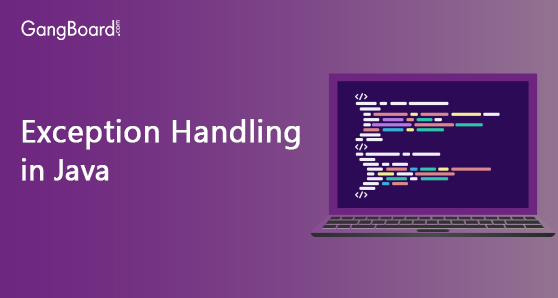
Exception Handling in Java
Exception Handling in Java
Definition
Error – Handling becomes a necessary while developing a application to account for exceptional satiations that may occur during the program executions.
Exception can be generated by Java-run time system or they can be manually generated by code.
Types of Exception:
- Checked Exception
- Un-Checked Exception
Checked Exception:
Checked exception must be handled at compile time.
Un-Checked Exception:
Un-Checked exception must be handled at Run time.
Program:
public class ArithmeticExceptionDemo
{
public static void main(String[] args)
{
int x=100;
int y=0;
int z=x/y;
System.out.println("z"+z);
}
}
|
Output:
Exception in thread “main” java.lang.ArithmeticException: / by zero
Implement the exception handling:
public class ArithmeticExceptionDemo
{
public static void main(String[] args)
{
int x=100;
int y=0;
try{
int z=x/y;
System.out.println("z"+z);
}catch(ArithmeticException e){
System.out.println (" x is not divided by zero");
}
}
}
|
Output:
| x is not divided by zero |
public class ArrayIndexOutExceptionDemo {
public static void main(String[] args) {
int [] inputArray={0,1,2};
int k=0;
for(int i=0; i < inputArray.length;i++){
int j = inputArray[i] + inputArray[i+1];
System.out.println("J"+j);
}
}
}
|
Output:
| J1
J3 Exception in thread “main” java.lang.ArrayIndexOutOfBoundsException: 3 |


 +1 201-949-7520
+1 201-949-7520 +91-9707 240 250
+91-9707 240 250